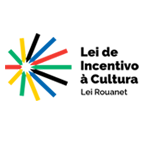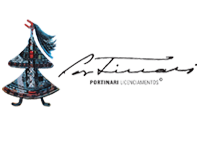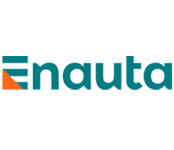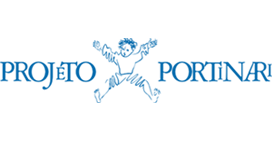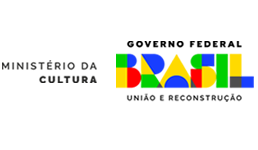General Info
1st. interview
Family background; childhood in Montevideo and Buenos Aires; coming to Rio de Janeiro in 1925; the stepfather; going to Paris in 1928; meeting Portinari; Sotero Cosme; Maria's first exposures to painting; the group of young Brazilian painters in Paris; Maria's refusal of official marriage; Hotel du Dragon; her friendship with the Mello Francos'; Portinari's physical handicap; trips throughout Italy; life in Paris; Plinio Salgado; Raul Bopp; "Palaninho"; Olegário Mariano; the musician and the literati friends Portinari painted; Murilo Mendes; Aporelli; Portinari's failing health; the return to Brazil in 1931; financial hardship; night life in Lapa and Cinelândia; the apartment in Lapa shared with Dante Milano; the arrival of Portinari's brother, Zé; Portinari's participation in the Salão dos Tenentes; Maria, Portinari's model; the painters Portinari admired; his growing dedication to painting while Maria sticks to household chores; the Revolution of 1930 goes unnoticed by the Portinaris in Paris; Escola Nacional de Belas Artes /ENBA under the direction of Lúcio Costa; Cardosinho; Ismael and Adalgisa Nery; portraits at the beginning of his career; Leônidas Autuori; Cícero Dias; Foujita moves to Portinari's house; Portinari is heavily criticized as a modern painter; Mário de Andrade; Portinari's quick temper; Portinari's generosity and jealousy; dissatisfaction and uncertainty as to the direction in which his painting is going; Maria is introduced to the Portinari family and to his world in Brodósqui.
2nd. interview
The Torquato and the Portinari families; Portinari's brothers; the parental encouragement; childhood in Brodósqui; Maria's catholic upbringing; Portinari's religious faith ; the painter's friends on his return from his prize trip; Laranjeiras and Cosme Velho; Dante Milano; José Jobim; his relationship with the ENBA; the jobs before the prize trip; Portinari shares a studio with Joaquim Ferreira and Teruz; relationship with the Rodrigues family; organization and discipline at work; the Vargas family; Lutero Vargas, Portinari's pupil; lack of interest in politics until the beginning of World War II; political incidents; Carlos Lacerda's hostility towards Portinari; the repression during the Estado Novo; self-exile in Montevideo; Oswald de Andrade; Portinari criticizes the Semana de Arte Moderna; his feud with Segall; Portinari's barbed comments; Mário Pedrosa's criticism; Jayme Maurício; Paulo Bittencourt and Niomar Moniz Sodré at the time of the foundation of the Museu de Arte Moderna do Rio de Janeiro/MAM-RJ; Jayme de Barros; incident during the installation of United Nations/UN panels; the "Salão Portinari"; Maria total dedication to both painter and their home; Carlos Drummond de Andrade; both the militaries and "integralistas" threaten Portinari; his first individual exhibition at the Palace Hotel; Assis Chateaubriand; esthetic integrity in Portinari's art; Enrico Bianco; the marketing of his works; the swindlers; Paulo Rossi Osir; the frescoes of Brodósqui and the Ministério da Educação e Saúde/MES; his assistants for the murals and panels.
3rd interview
Graciliano Ramos; José Lins do Rego; Jorge Amado; "Coffee" and the Carnegie Institute award; 1940 - shows at MoMA and at the Detroit Institute of Arts; a group show at the Riverside Museum; the Monumento Rodoviário panels; Aldary Toledo and Rubem Cassa; Universidade do Distrito Federal/UDF; Anísio Teixeira; the repression during Estado Novo; Paulo Rossi Osir; Lúcio Costa; the frescoes on the "Economic Cycles" at MES; the Vargas family; birth and early years of son João Candido; Portinari's dedication to his son; Portinari's relations with the Americans; "good-will" policy; Nelson Rockefeller's concern with the American image; the Library of Congress murals, in Washington; portraits of the Rockfeller family; the United States enter World War II; problems in returning to Brazil; the impact of Picasso's "Guernica" on Portinari; Brazilian intellectuals engage in different ways to fight against nazi-facism; Apolônio de Carvalho.
4th. interview
The return to Brazil in 1940, after his show at the Museum of Modern Art/MoMA; Professor Focillon; Portinari's brother, Oswaldo; Portinari's parents visits to Rio de Janeiro; the group of friends that used to congregate in their house in Leme; Jayme Ovalle; Dante Milano; Villa-Lobos; the influence of World War II on Portinari's mood; the repression in Estado Novo; the 1945 amnesty; Luís Carlos Prestes and President Getúlio Vargas ; Portinari runs for Congress in 1945 and Senator in 1946; the relation with the Communist Party; Lacerda's accusations; Escola do Povo; Oscar Niemeyer; Portinari's work absent in Brasília; state security agency intimidates Portinari; political incidents; his trip to Uruguay; affiliation to Communist Party; the Communist Party criticizes Portinari's paintings; Pedro Pomar; criticism of "Tiradentes"; the question of the socialist realism; Clóvis Graciano; closer ties with São Paulo on account of political campaigns; Maria regains her religious faith; Carlos Drummond de Andrade; his campaign to Senator; doubts about the results of the election; Portinari photographs his works; trunk, clay water jug and scarecrow are recurring shapes and forms in Portinari's work; his relationship with critics; no specialized criticism in the 1940s and 1950s in Brazil; the role of René Huyghe; 1946- trip to Paris for his show at the Galerie Charpentier; contact with Portuguese intellectuals in Lisbon, on the way to Paris; the campaign against Portinari waged by painter Cícero Dias in Paris.
5th interview
Their 1946 stay in Paris for the Galerie Charpentier exhibition; the friends; Jacques Dumaine; Jayme de Barros; Cícero Dias' campaign against Portinari; Francis Jourdain; Germain Bazin; Portinari is awarded the "Légion d'Honneur"; Maria becomes ill in Paris; Portinari paints the "Boys from Brodósqui Series"; the Versailles Peace Conference; his enthusiasm for the postwar Russians; their little boy João Candido in Paris; Van Dogen; Othon Friez; Auricoste; Eugenio Luraghi; Rafael Alberti; his exhibition at the Salon Peuser in Buenos Aires; Portinari receives an official invitation and travels to Uruguay for the first time; frescoes and panels painted during his second stay in Uruguay; João Condé; 1946-1950: five-years of many travels; 1961- a critically ill Portinari is scorned on his last trip to France; 1940 - in Paris, Portinari paints "Slave Ship" and the panel "Fishermen" assisted by some young artists; his numerous trips to France; João Candido leaves for France to study.
6th interview
Portinari and his relationship with the Communist Party; Luís Carlos Prestes; the intelectuals of the Communist Party are mostly displeased with Arruda Câmara; Portinari feels that painting is the most important thing he can do for the Communist Party; Pablo Neruda; Jayme de Barros is suspended from his position in Paris; during President Dutra's term Portinari feels isolated due to political issues; the inauguration of "Tiradentes" panel brings an end to this isolation; Raymundo Castro Maya; Clemente Mariani; the conception of both panels, "Tiradentes" and "Coluna Prestes"; the Peixotos and the Pachecos from Cataguases; the studio at Cosme Velho and the move to Leme: Maria looks after most of Portinari's mail; Roger Garaudy; Portinari's letters to his family; trips to Brodósqui; Portinari participates in the foundation and first board of directors of MAM, Rio de Janeiro; Baron and Baroness of Saavedra; President Vargas' second term; Lourival Fontes; the friends: Raul Bopp , José Jobim and Queiroz Lima; poet Ungaretti drops in for a visit; Maria rediscovers Portinari's works through the documents compiled by Projeto Portinari.
7th interview


















































